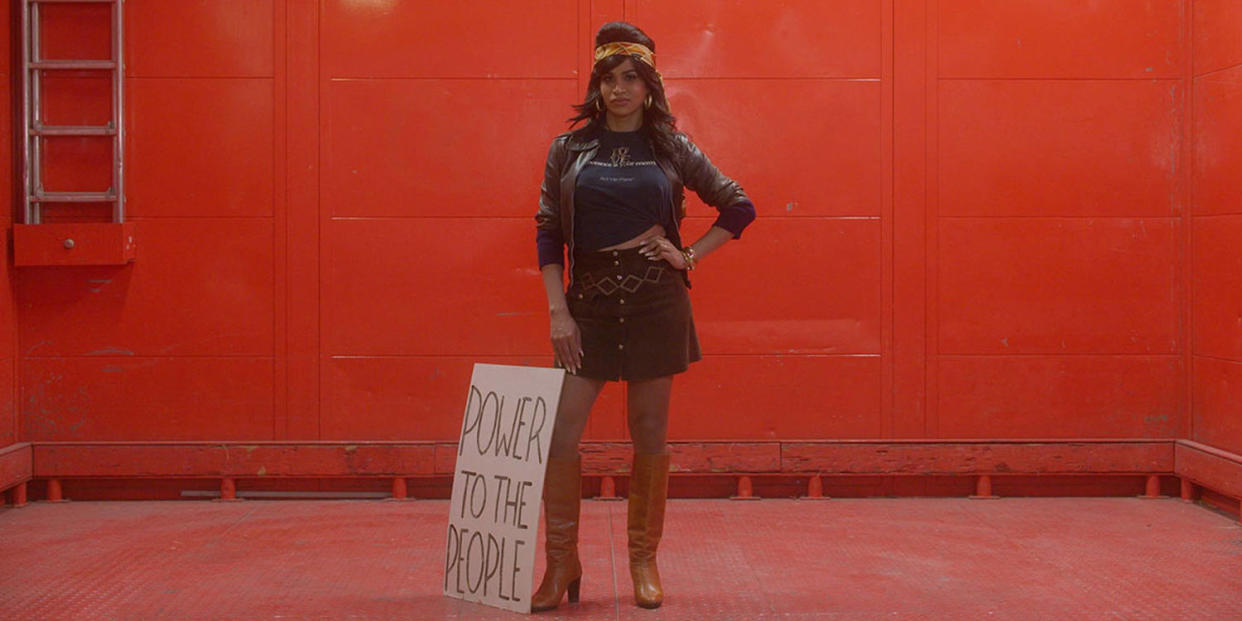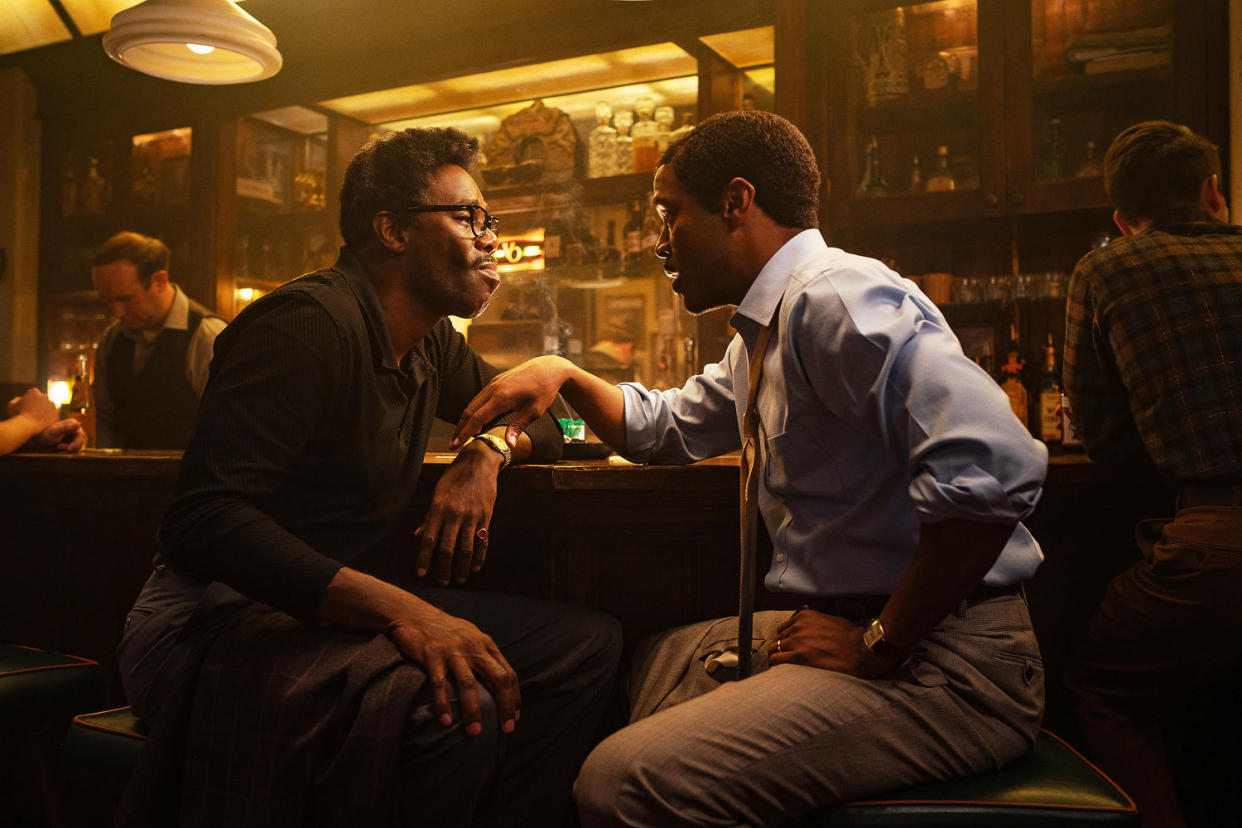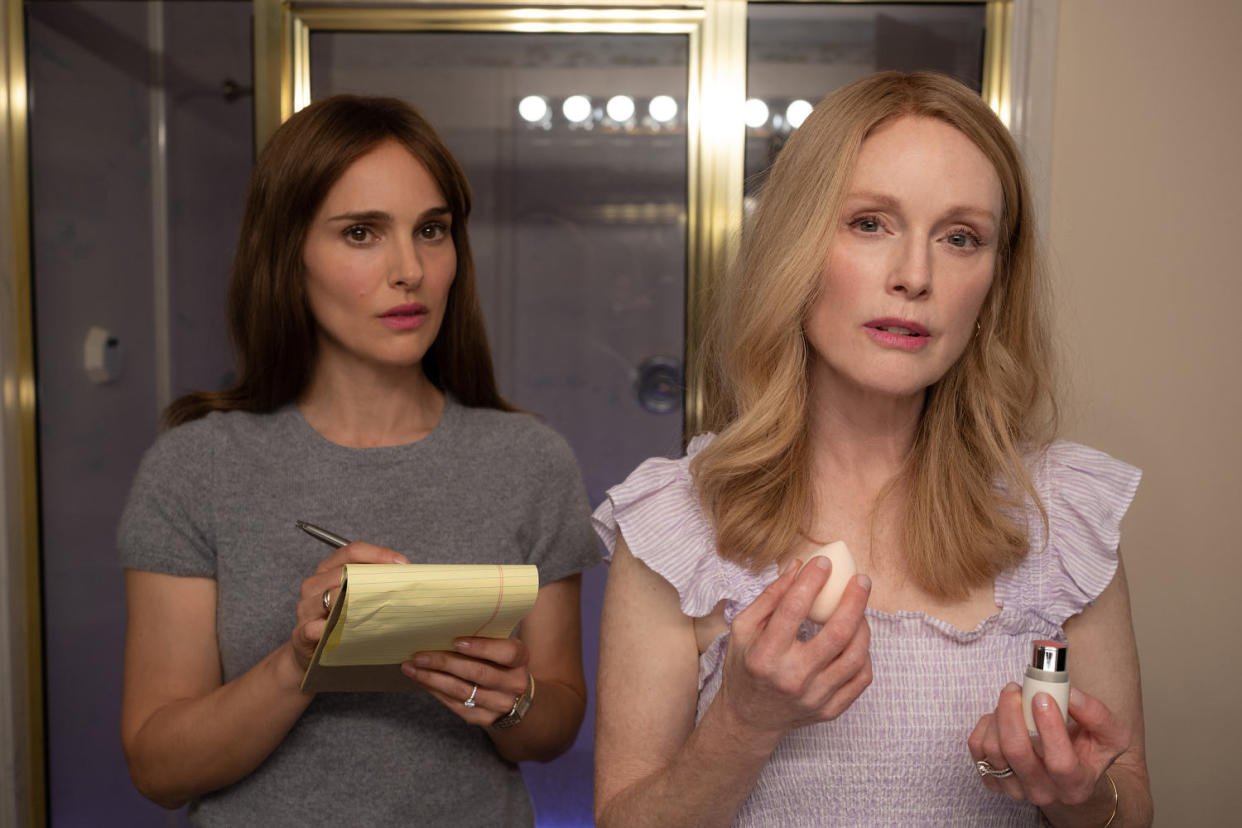At NYC's largest LGBTQ film festival, the future of cinema is bright
This week, a dedicated collection of queer movie lovers will flock to screenings across Manhattan and Brooklyn as NewFest, New York’s premier LGBTQ film festival, marks its 35th anniversary. To celebrate having survived 3½ decades, the annual festival has secured a stacked list of titles that includes some of the year’s biggest awards-season contenders.
The lineup — bookended by Netflix’s “Rustin” biopic on opening night and Searchlight Pictures’ “All of Us Strangers” to close — continues a pattern of expansion for the nonprofit group behind the festival, which runs Thursday to Oct. 24.
“Over the years, studios and distributors have started to look at us in a different way and to see that not only do we have the reach and the audience, but that the specific energy that is created at a NewFest screening is a really great launchpad for a film,” David Hatkoff, the executive director of NewFest, said in a joint interview with Nick McCarthy, the director of programming, ahead of Thursday’s opening night festivities.
Some of the year’s centerpiece offerings — including Emma Fidel’s “Queen of New York,” which combines drag and New York City politics, and Daniel Peddle’s retrospective documentary “Beyond the Aggressives: 25 Years Later” — are launching in the truest sense with world premieres. But many of the anniversary edition’s buzziest titles are using the festival as a jumping-off point into awards season after splashy debuts earlier in the year.
The closing night film, Andrew Haigh’s “All of Us Strangers,” a ghostly love story that deals with parental loss that stars Paul Mescal (“Aftersun”) and Andrew Scott (“Fleabag”), premiered at this year’s Telluride Film Festival. But Haigh, whose film “Weekend” was the Narrative Centerpiece at NewFest in 2011, is sure to get a unique reception from a queer audience well-known to be big Mescal and Scott fans.
“Orlando: My Political Biography,” a stunning debut from career academic Paul B. Preciado, swept the Berlin International Film Festival when it premiered there in February. While the experimental documentary has already garnered dramatic accolades, such as “the first real trans masterpiece,” it’s still gaining steam as it transitions from festival darling to awards-season hopeful.

“May December,” American auteur Todd Haynes’ new feature starring longtime muse Julianne Moore and Natalie Portman, opened the New York Film Festival at the tail end of September. But Haynes’ film, about an actor (Portman) who develops an unhealthy obsession with the enigmatic woman (Moore) she’s playing in a tabloid biopic, exemplifies the best of what NewFest has to offer. And to that point, Haynes — who has been a beloved fixture at the queer festival since he screened his second feature, 1991’s “Poison,” at its third edition — will be honored with the year’s Queer Visionary Award.
And, of course, there’s George C. Wolfe’s highly anticipated biopic starring Colman Domingo as the gay civil rights activist Bayard Rustin. The film premiered at Telluride before it headed to the Toronto International Film Festival and the opening night of NewFest.
‘Then, now and forever’
McCarthy described the ethos of this year’s festival as the “then, now and forever” of queer film. As part of that, the lineup includes what he calls a “monumentally gorgeous” restoration of Isaac Julien’s 1991 “Young Soul Rebels,” as well as the programming team’s favorite films from the more than 1,000 submissions it received ahead of the anniversary edition.
“In tandem with that, we’re celebrating queer icons that may not have even gotten their due in a more mainstream space,” McCarthy said of the titles that represent the “forever” part of the lineup, including “Rustin.”
The buzzy Rustin biopic, which is timed to the 60th anniversary of the 1963 March on Washington, is the first film Wolfe has had at the festival. And Wolfe, the Tony-winning playwright and filmmaker who directed the Broadway premiere of Tony Kushner’s “Angels in America,” is in good company. A number of the festival’s most sought-after screenings come courtesy of high-profile first-time NewFest directors.

NewFest newbies Jimmy Chin and Elizabeth Chai Vasarhelyi, the husband-and-wife team behind the Oscar-winning 2018 documentary “Free Solo,” contributed the year’s U.S. Centerpiece, “Nyad.” Their narrative debut about swimmer Diana Nyad’s 110-mile swim from Cuba to Florida, starring Annette Bening and Jodie Foster, is almost guaranteed to get a few glances from Motion Picture Academy voters (whenever that time, contingent on the end of the stalled SAG-AFTRA strike, actually comes).
Joining the directing duo in the centerpiece section is Hirokazu Kore-eda, the acclaimed filmmaker behind 2018’s “Shoplifters.” Although it’s out of the race for the Japanese Oscar selection, Kore-eda’s newest film, “Monster,” has had significant success at the global box office. The multi-perspective thriller about an incident at a Japanese elementary school, which Kore-eda made in consultation with an LGBTQ children’s organization, has been a slow-burner hit among critics since it premiered at the Cannes Film Festival in May.
William Oldroyd, the director behind 2016’s “Lady MacBeth,” which launched the career of Florence Pugh, is also appearing at NewFest for the first time. Oldroyd’s “Eileen,” which is based on Ottessa Moshfegh’s acclaimed first novel and stars Anne Hathaway and Thomasin McKenzie as juvenile detention co-workers whose fates become intertwined under twisted circumstances, is arguably the most anticipated sapphic film of an otherwise lesbian-less year.
Collectively, the year’s eye-catching films — a number of which are made by non-LGBTQ filmmakers — represent the NewFest team’s evolving approach to programming films. It embraces a wide spectrum of experiences, uses more than just directors’ identities as a standard for queerness and looks beyond the tastes of the current moment.
“When we’re considering films, it is beyond trend. It’s, sort of, what film do we believe to be an authentic portrait? What film do we believe to encompass a perspective, to speak to an audience — whether it’s affirming or stepping into the shoes of someone else?” McCarthy said.
Under the leadership of McCarthy, who has been with the nonprofit organization since 2016, and Hatkoff, who took over in 2019, NewFest has thrived. And their approach to programming has earned this year’s festival an unparalleled amount of media attention.
Hatkoff attributes the increased attention — and the engagement of some of the industry’s biggest players, including Netflix, Neon, MUBI and Searchlight — to not only the annual festival’s steadily growing profile, but also the nonprofit group’s “really robust year-round programming,” which includes monthly screenings and flagship programs like NewFest Pride. But he and McCarthy credit above all the unique moviegoing style of the growing number of people attending the NewFest screenings.
“Folks trust that, when they walk through those doors, that they’re going to see a wonderful film and it’s going to be a magical energy in the room,” McCarthy said.

Despite NewFest’s relatively smaller size, it has been able to buck recent budgetary trends affecting other film institutions.
“We’re bigger than we’ve ever been. We’re more financially stable than we’ve ever been. Our audiences are bigger than they’ve ever been,” Hatkoff said. “It’s unusual in the nonprofit space — in the festival space, in the queer-service space — to actually be on solid footing.”
Being on solid financial ground these days is no small feat for an organization of NewFest’s type. To start, film festivals have notoriously difficult times turning profits. Just last month, NewFest’s Los Angeles counterpart, Outfest, made headlines when it laid off employees who had just announced a unionizing effort, maintaining that the move was related to “financial hardship.” And this summer, the Berlin International Film Festival, which is one of the “Big Five” festivals, announced it would reduce its lineup by nearly a third in 2024.
It has s also been a rough several years for movie houses and cultural venues that host festival screenings. Although “Barbenheimer” — the simultaneous release of Greta Gerwig’s “Barbie” and Christopher Nolan’s “Oppenheimer” — packed theaters over the summer, many labeled the brick-and-mortar box-office boost as a fleeting phenomenon. There’s also speculation that the year’s dual Writer’s Guild of America and Screen Actors Guild strikes will result in a dearth of content and difficulties attracting audiences next year.
But while not everyone is looking at the future of film as limitless, it’s more than wishful thinking that the NewFest team is focusing on the “forever” of queer cinema.
